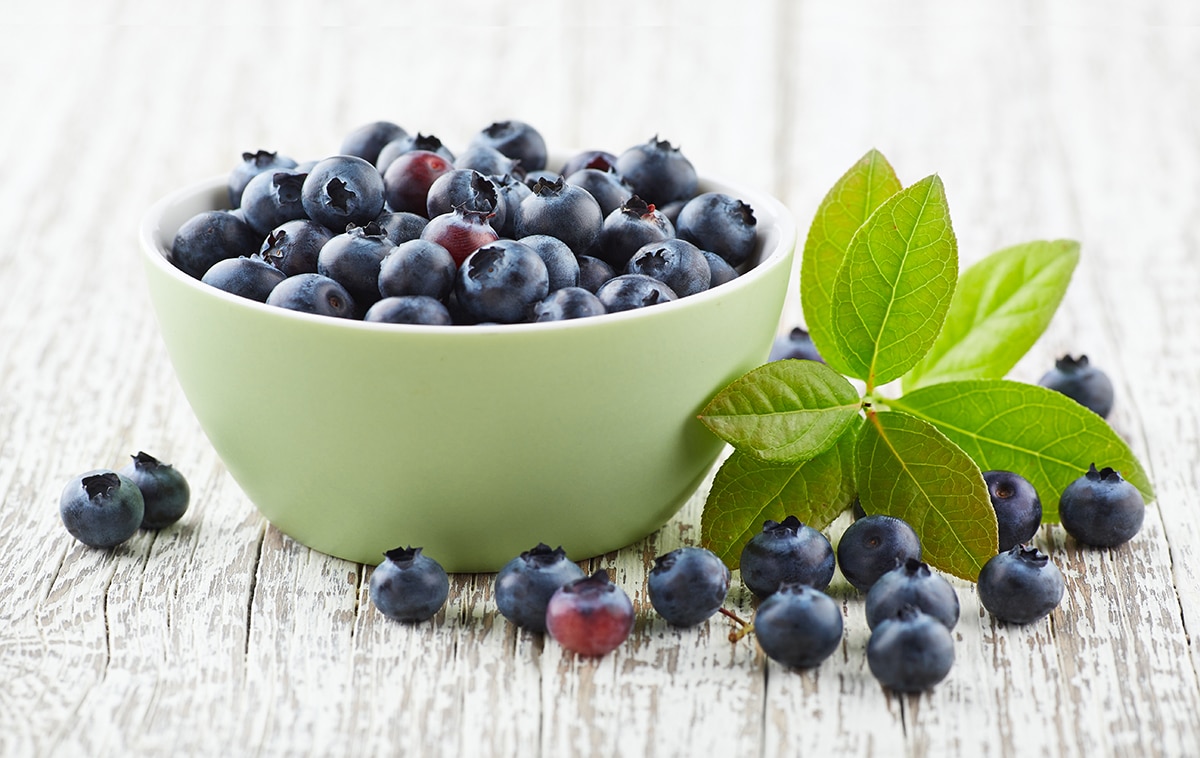Are you searching for a simple and delicious way to enhance your overall health and wellness? Look no further than the wonderful world of polyphenol-rich foods! These natural compounds can be found in a variety of plant-based foods, from fresh fruits and vegetables to hearty nuts and seeds. Not only have they been linked to a host of health benefits such as reducing inflammation and improving gut health, but they may also protect against chronic diseases like cancer and heart disease.
In this article, we’ll dive into the top polyphenol-rich foods you can add to your diet, along with helpful tips for incorporating them into your daily meals.
Join me as we explore the many benefits of these amazing compounds, and answer common questions to help you make the most of their health-enhancing properties.

What Are Polyphenols?
Polyphenols are a group of compounds found in many plant-based foods. They include flavonoids, phenolic acids, lignans, and stilbenes[1]. Polyphenols are known for their antioxidant properties and potential health benefits[2].
Polyphenols are a class of organic compounds that are high in dietary antioxidants and have been shown to have numerous health benefits, including immune system support, reducing the risk of chronic diseases such as cardiovascular diseases and neurodegenerative diseases. Polyphenol consumption has also been linked to improved insulin secretion and decreased insulin resistance. They are characterized by their chemical structure, which includes multiple phenol rings. Polyphenols are known for their antioxidant properties, which means they can neutralize free radicals and protect cells from oxidative damage.
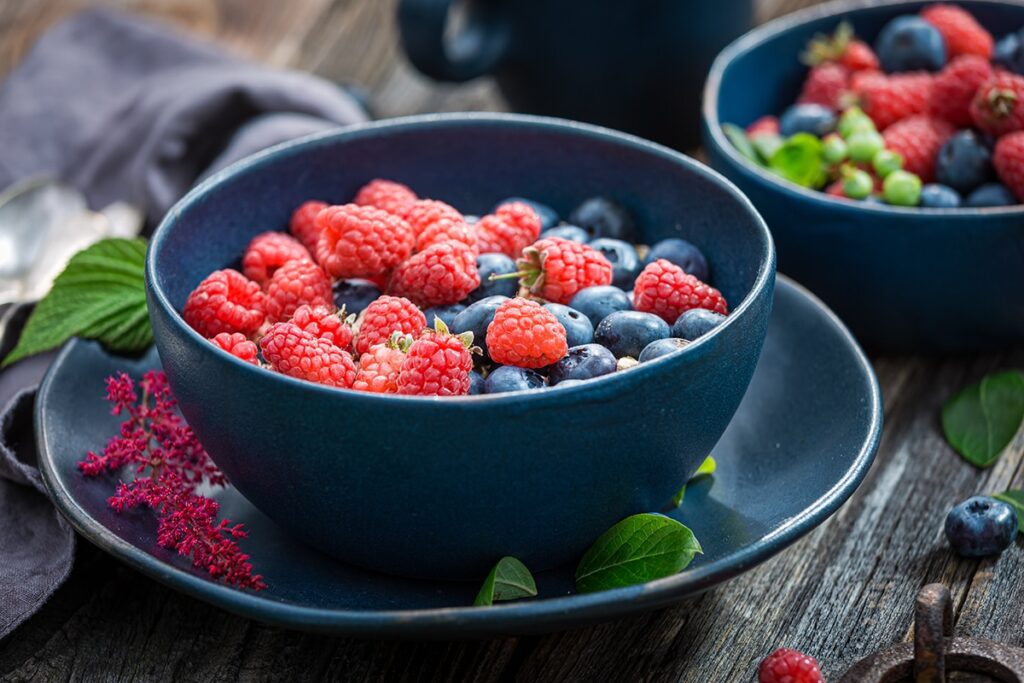
What are flavonoids?
Flavonoids are a group of natural substances with variable phenolic structures that are found in fruits, vegetables, grains, bark, roots, stems, flowers, tea and wine [3]. They are a type of polyphenol well known for their beneficial effects on health[3][4]. Flavonoids are a large family of over 5,000 hydroxylated polyphenolic compounds that carry out important functions in plants[5], and they can be found in deeply colored fruits and vegetables such as berries and red cabbage[6].

Health Benefits of Eating Foods that are Rich in Polyphenols
Epidemiological studies suggest that long-term consumption of plant polyphenols protects against cardiovascular disease, cancer, osteoporosis, diabetes, and other diseases [7]
Polyphenol-rich plant foods, such as flax seeds, dark chocolate, nuts and seeds, red wine, green tea, and olive oil, have more health benefits than other foods that are low in polyphenols or do not contain them.
Here are some of the numerous health benefits of eating polyphenol rich foods:

Lowering blood pressure
Polyphenols are natural compounds found in plant foods that have been shown to have a positive impact on cardiovascular health, including the ability to lower blood pressure .
Studies have shown that regularly consuming polyphenol-rich foods like berries, green tea, and dark chocolate can help reduce blood pressure levels. Polyphenols are believed to work by improving the function of the endothelium, which is the lining of blood vessels. By improving endothelial function, polyphenols can improve blood flow and lower blood pressure.
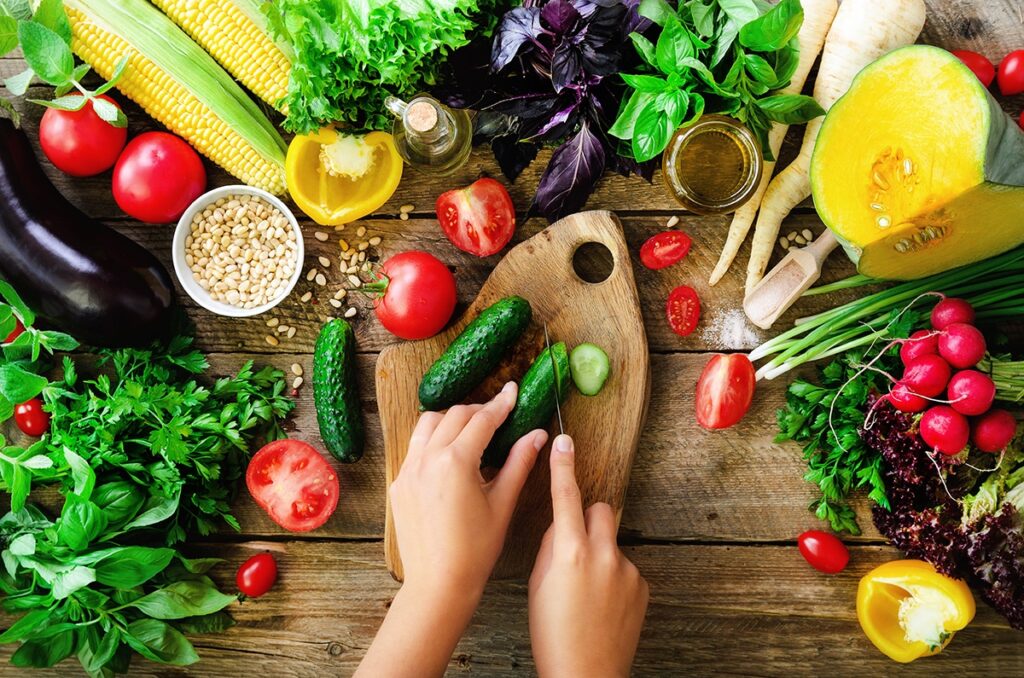
Improving gut health
Polyphenols have been shown to support gut health by reducing potentially harmful bacteria and promoting the growth of beneficial gut bacteria. These compounds have prebiotic properties, meaning they provide food for probiotics, the good bacteria in our gut.
Polyphenols can also reduce inflammation in the gut and improve intestinal barrier function. Consuming foods high in polyphenols like fruits, vegetables, and whole grains can help improve overall gut health.
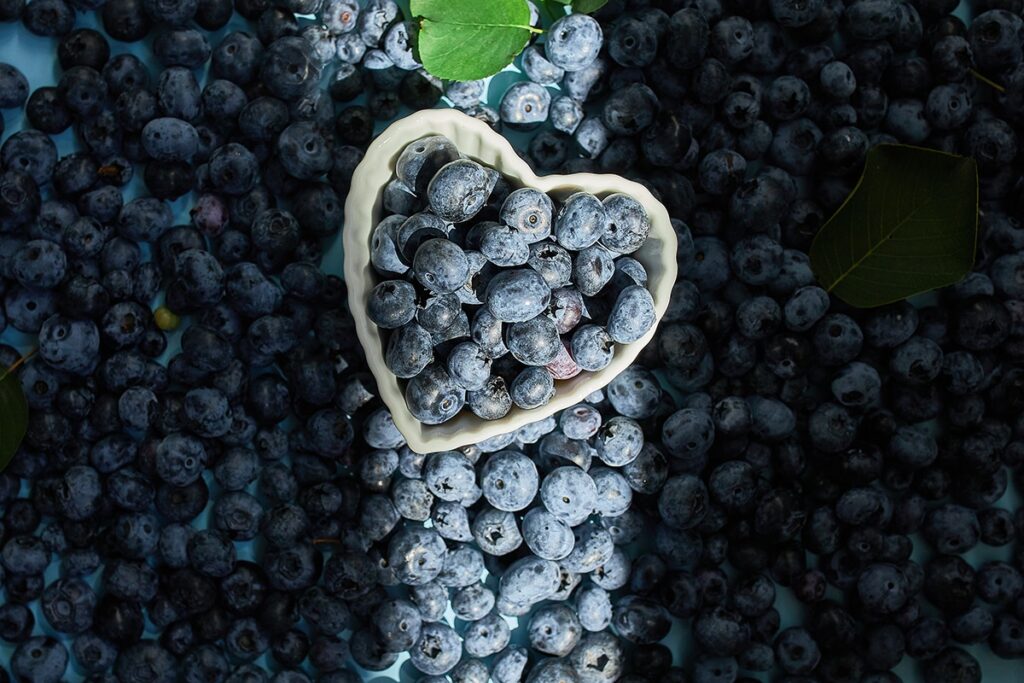
Lower risk of heart disease
Eating a diet that is rich in polyphenol foods may help lower the risk of heart disease.
These compounds have antioxidant and anti-inflammatory properties that can protect against heart disease by reducing the damage caused by oxidative stress and inflammation.
Polyphenols can also help improve cholesterol levels by reducing the amount of LDL (bad) cholesterol in the bloodstream. Foods high in polyphenols, such as berries, nuts, and green tea, can be a beneficial addition to a heart-healthy diet.
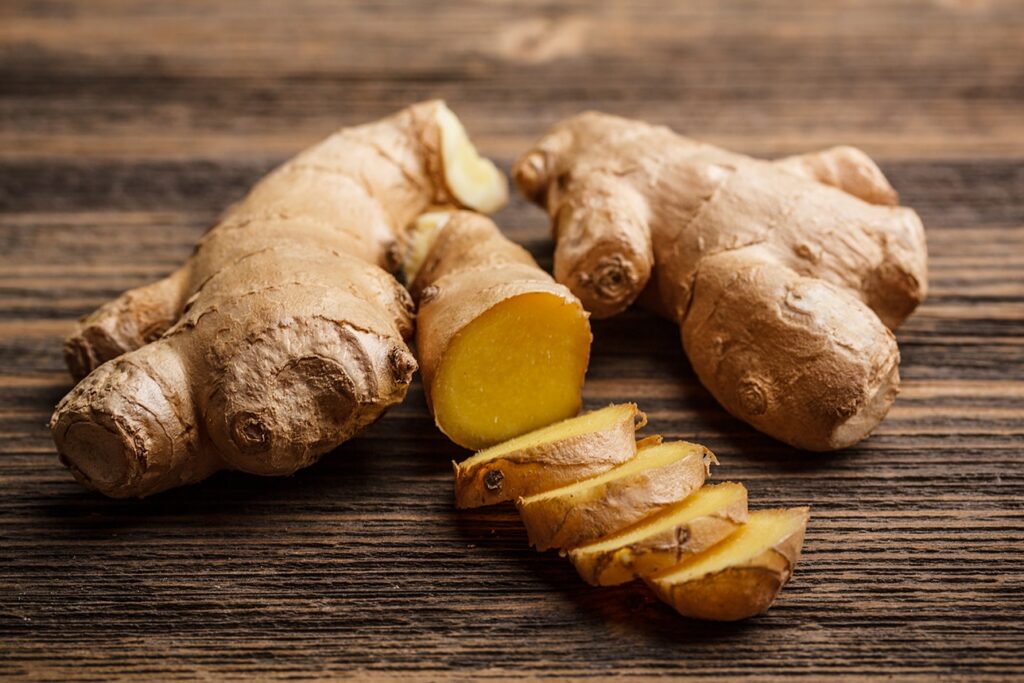
Reduce inflammation
Polyphenols have been shown to have anti-inflammatory properties, making them useful in reducing inflammation in the body. Inflammation is a key factor in many chronic diseases, including arthritis, heart disease, and cancer development. They can help reduce inflammation by neutralizing free radicals, which can cause damage to cells and lead to inflammation. Foods high in polyphenols, such as fruits, vegetables, and spices like turmeric and ginger, can help reduce inflammation in the body.
For more tips on reducing inflammation, see my article on red light therapy here.
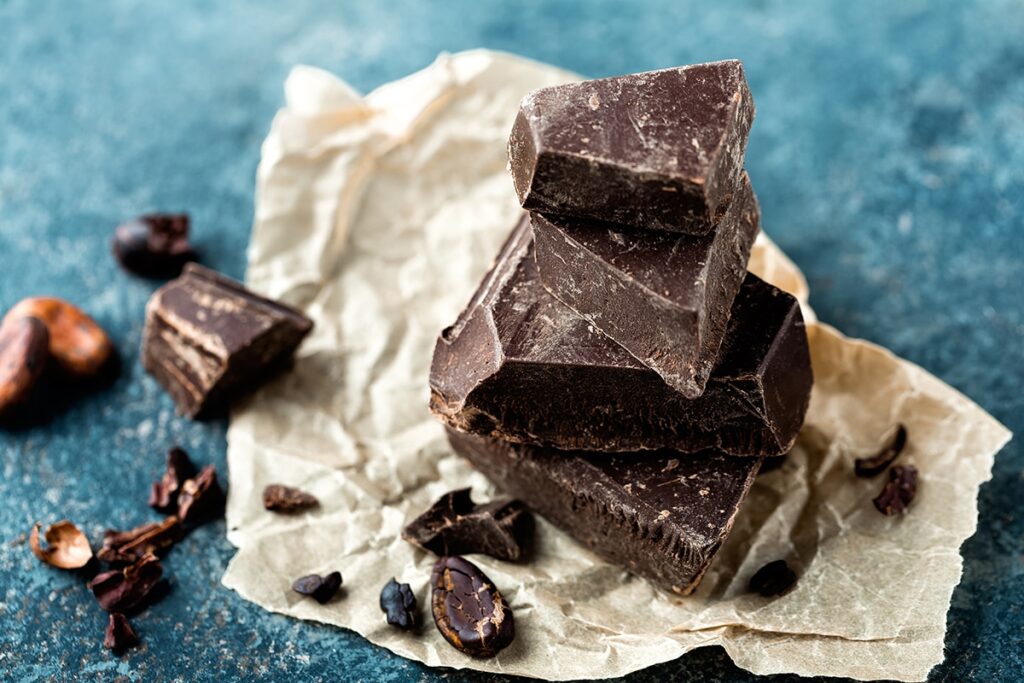
Lower blood sugar levels
Polyphenols may also help lower blood sugar levels by improving insulin sensitivity. Insulin is a hormone that helps regulate blood sugar levels, and insulin resistance is a major risk factor for type 2 diabetes. Polyphenols can improve insulin sensitivity by reducing oxidative stress and inflammation in the body. Foods high in polyphenols, such as dark chocolate, berries, and legumes, can be a beneficial addition to a diabetes-friendly diet.
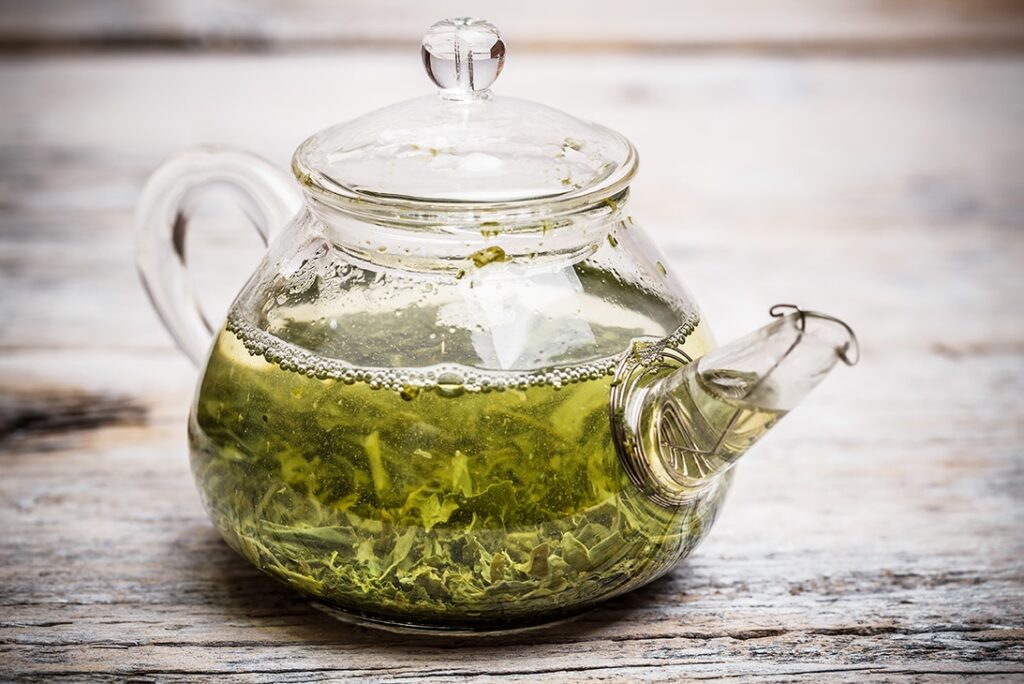
Boost Brain Function
Studies have found that polyphenols can increase blood flow to the brain, which can enhance cognitive function,memory and overall brain health.
Some polyphenols, such as those found in green tea and cocoa, have even been linked to a reduced risk of neurodegenerative disease (Alzheimer’s and Parkinson’s) by reducing inflammation and oxidative stress in the brain.
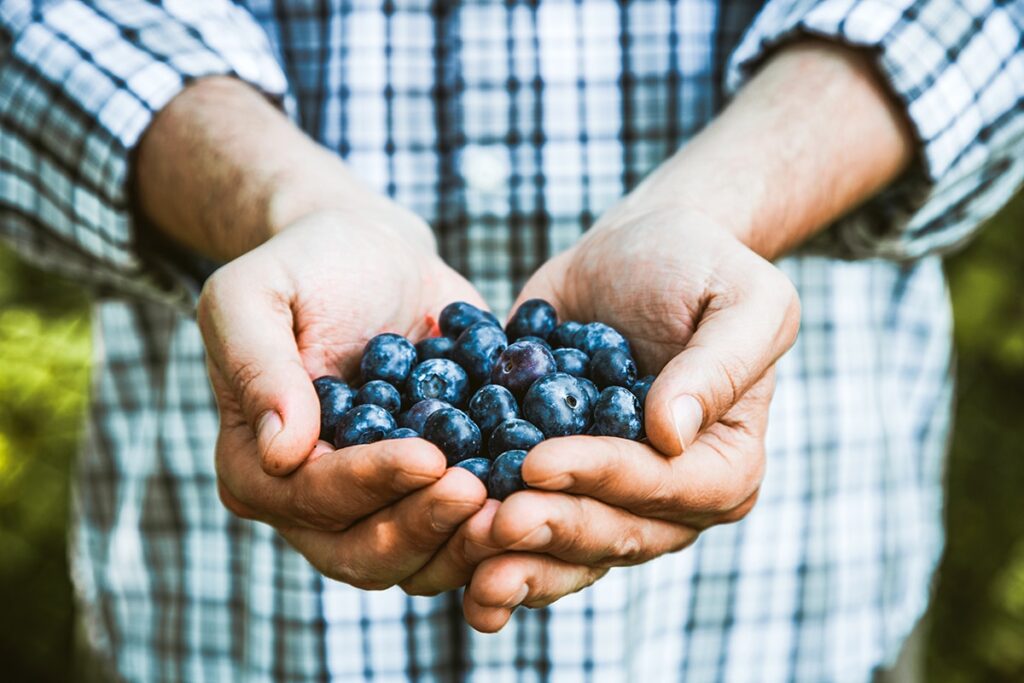
Polyphenols for skin
One of the many reasons why I absolutely love polyphenols is because of the impact they’ve had on my skin. I’ve been consuming foods such as green tea, white tea and blueberries them for as long as I can remember!
These powerful antioxidants can help protect the skin from harmful UV radiation, pollution, and other environmental stressors that can damage the skin over time in addition to improving skin elasticity, hydration, and overall appearance by reducing inflammation and increasing blood flow to the skin.
The most well-known polyphenol for skin health is epigallocatechin gallate (EGCG), which is found in green tea. Studies have shown that EGCG can help protect the skin from UV damage and may even reduce the risk of skin cancer.
Other polyphenols, such as resveratrol found in red wine and quercetin found in apples and onions, have also been found to have beneficial effects on the skin.

Boost Your Health with Polyphenol-Rich Foods
Clinical Nutrition research has shown that polyphenol-rich plant foods, such as flax seeds, dark chocolate, nuts and seeds, red wine, green tea, and olive oil, have more health benefits than other foods that are low in polyphenols or do not contain them.
These polyphenol rich foods have numerous health benefits, including potential heart healthy benefits, immune system support, and neutralization of free radicals that may contribute to chronic disease.
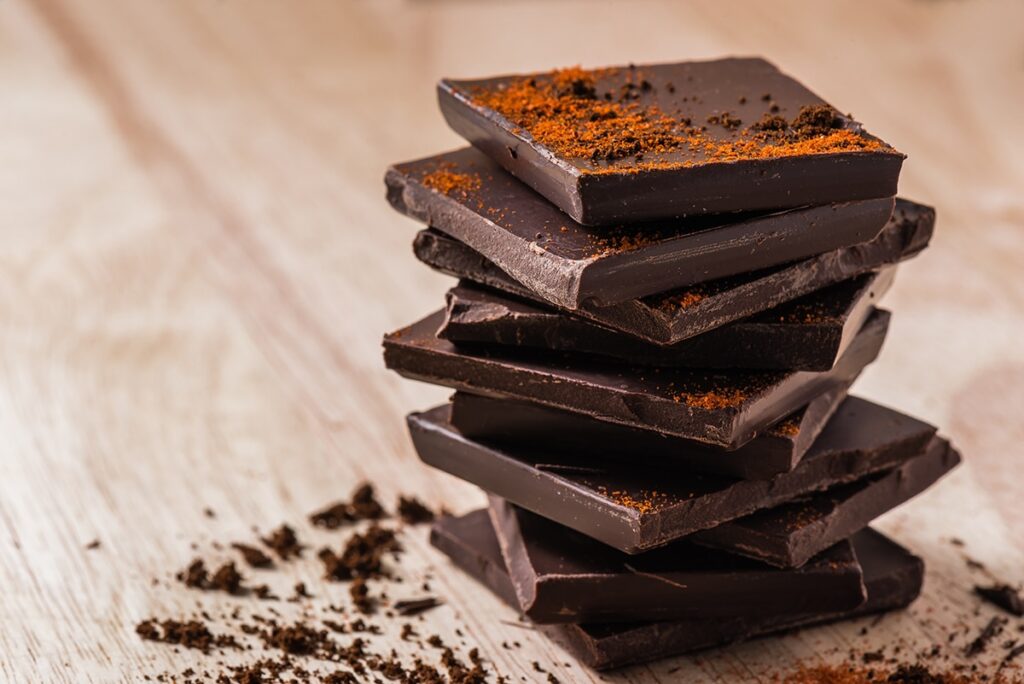
Dark Chocolate and Cocoa Powder
Yes, you read that right – dark chocolate is a great source of polyphenols! Even adding just a small amount of dark chocolate or cocoa powder to your diet can provide numerous health benefits for heart disease and insulin sensitivity.
Make sure to choose high-quality, dark chocolate with a cocoa content of at least 70% because milk chocolate is not a good source of polyphenols. I love eating dark chocolate 70% I eat one square every other day with my green tea. It’s my favorite little treat!
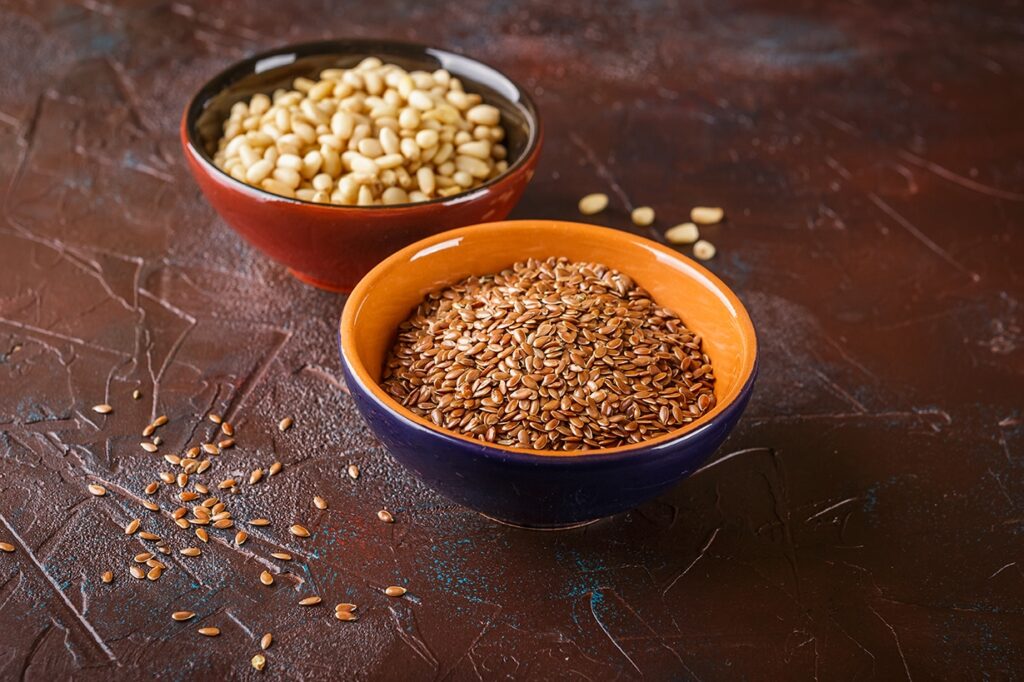
Nuts and Flax Seeds
Nuts and seeds are packed with polyphenols, fiber, healthy fats, and protein. Almonds, walnuts, pistachios, and pecans are some of the nuts with the highest polyphenol content.
Flax seeds are an excellent source of polyphenols, and they also provide omega-3 fatty acids, fiber, and lignans. These compounds work together to promote a healthy heart, lower blood sugar levels, and improve digestive health. They are super easy to incorporate into your diet; you can add them to smoothies, oatmeal, yogurt, or sprinkle them over salads. To maximize their benefits, it’s best to grind them before consuming, as whole ones may pass through your body undigested.

Red Wine
If you enjoy a glass of red wine with dinner, you’ll be happy to know that red wine is another source of polyphenols that has been studied for its potential heart healthy benefits- it contains a type of polyphenol called resveratrol, which has been linked to lower blood pressure, improved blood fats and increased lifespan in certain animals[8].
Just make sure to choose high-quality, organic wines and of course, drink in moderation!
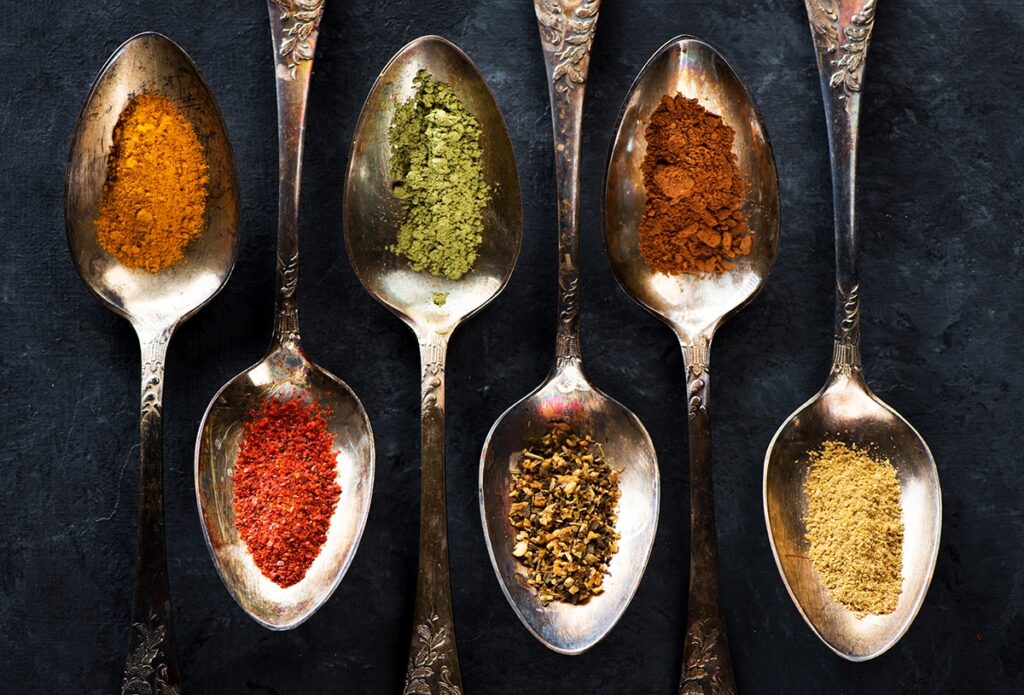
Herbs and Spices
According to the Phenol Explorer database, some of the most potent sources of polyphenols are cloves, cinnamon, oregano, and turmeric. These herbs and spices not only add flavor to your meals but also provide a host of benefits. For example, turmeric has anti-inflammatory properties, while cinnamon has been shown to help regulate blood sugar levels.

Green Tea
Green tea is another excellent source of polyphenols, particularly a type of polyphenol called catechins. Studies have found that green tea can help improve brain function, lower the risk of cardiovascular disease, and may even reduce the risk of certain types of cancer.
I make sure to order good quality loose leaf teas from Japan because they are rich in polyphenols and antioxidants. I usually have 2-3 cups of tea per day, and even though it has caffeine, it’s a healthy kind of caffeine that doesn’t leave me feeling jittery or anxious and that can help me power through my day.
However, I do try to avoid drinking tea at night, so I usually stop consuming it around 4pm. But, even just one cup at 4pm can give me a burst of energy to finish my day strong!
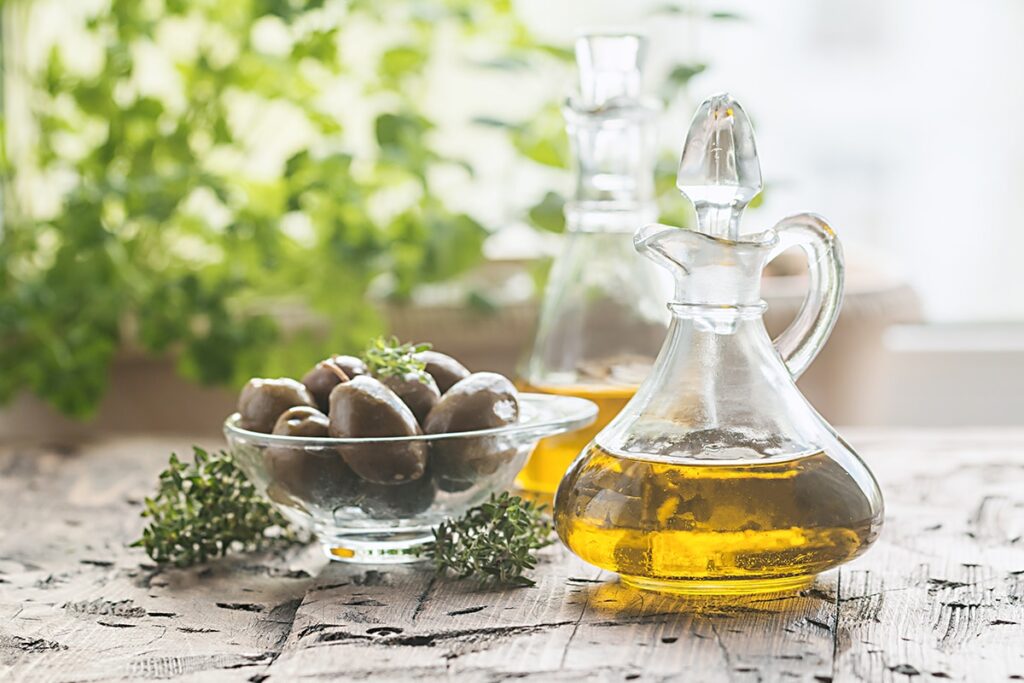
Olive oil
Olive oil and green olives are staples of the Mediterranean diet and two other foods that are high in polyphenols and promote human health overall.
To incorporate olive oil into your diet, use it as a dressing for salads, or even as a dip for bread.
Just make sure to pick a “real” one. The video above is a great, it shows you how to make sure that you are getting a good, real, olive oil.
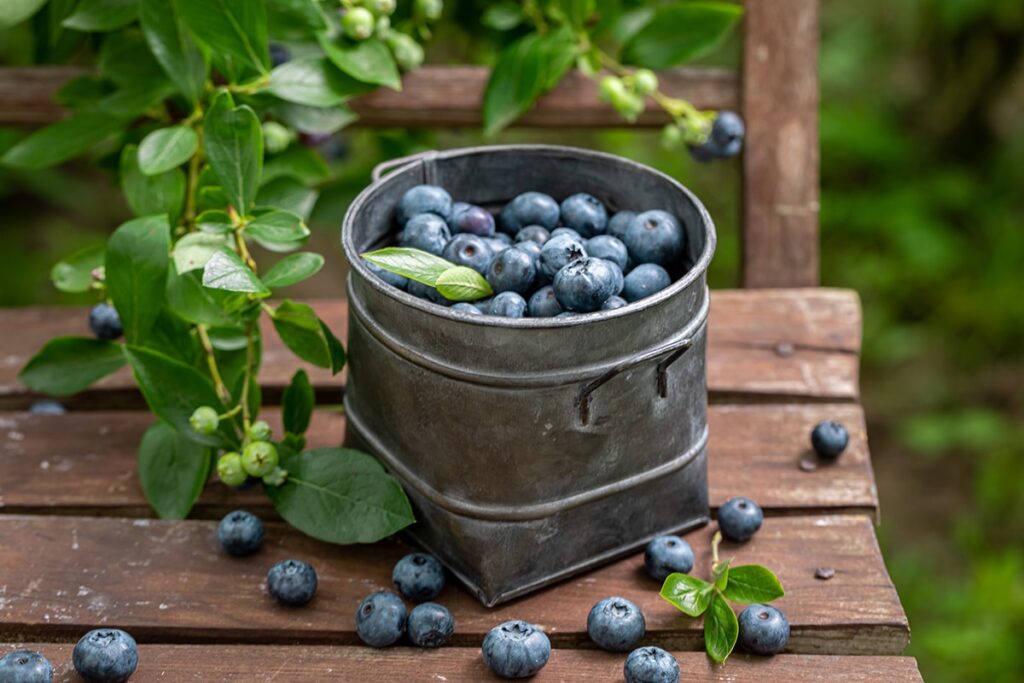
Plant Based Foods
Plant-based, high vibration foods are a great source of polyphenols. Fruits, vegetables, legumes, and whole grains are all rich in these beneficial compounds. Berries, in particular, are an excellent source of polyphenols, with blueberries, raspberries, and strawberries being some of the most potent sources. Leafy greens like spinach, and collard greens are also rich in polyphenols, as are beans and lentils.
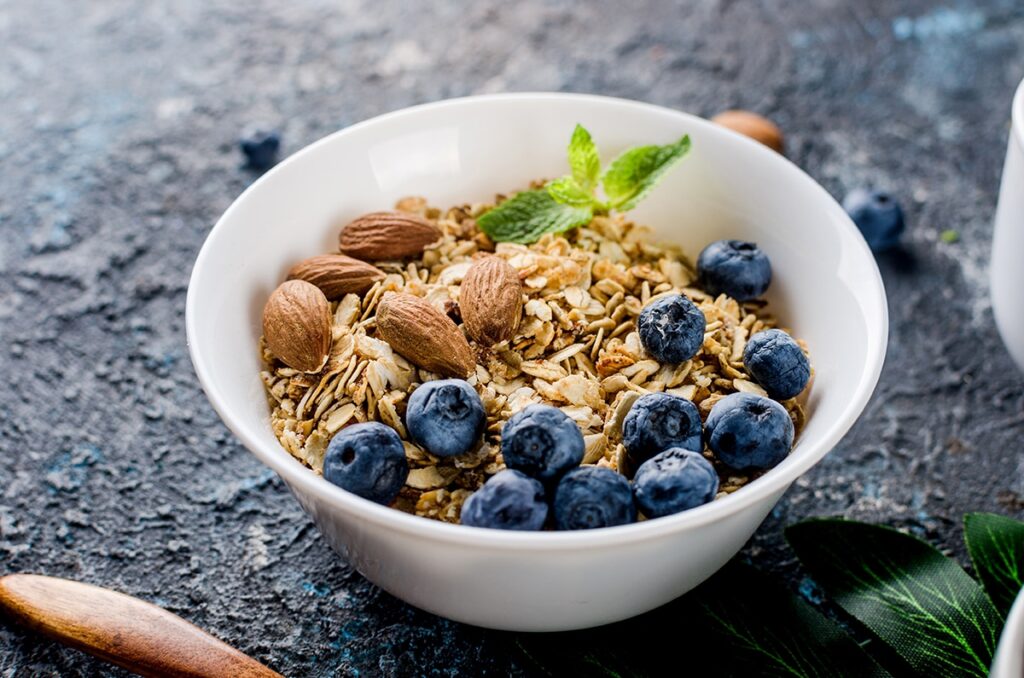
How to Incorporate Polyphenol-Rich Foods into Your Diet:
Incorporating polyphenol-rich foods into your diet doesn’t have to be difficult. Here are a few easy tips:
Start your day with a berry smoothie or oatmeal topped with nuts and seeds.
Snack on fresh berries, nuts, and dark chocolate throughout the day.
Add spinach or broccoli to your salads, sandwiches, or wraps.
Enjoy a cup of green tea with your meals or as a mid-afternoon pick-me-up.
Pair your dinner with a glass of red wine.
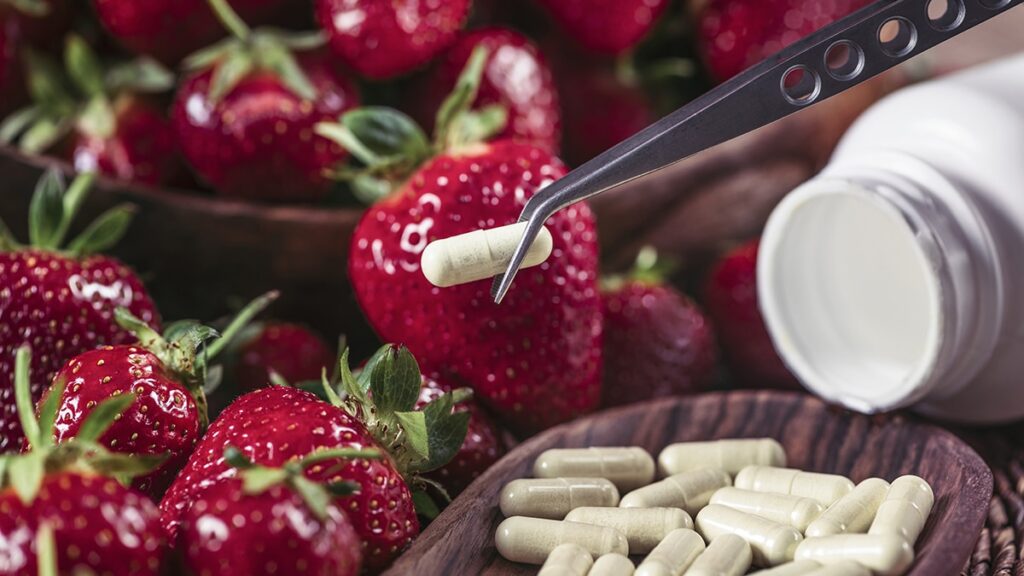
Should I Take Polyphenol Supplements?
While taking polyphenol supplements may be an option for some people, it is important to note that it is always best to obtain essential nutrients from whole foods whenever possible. Additionally, it is important to maintain a healthy balance of other nutrients in the diet, including vitamin E and healthy fats, as well as blood pressure and blood sugar levels.
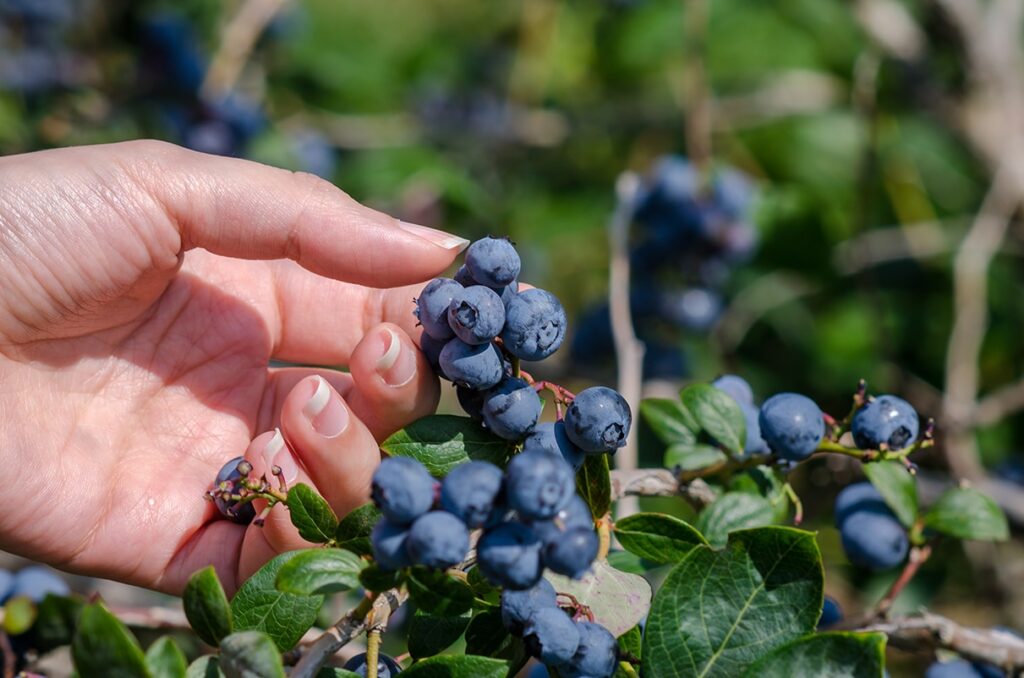
Coaching Sessions
Growing up in Siberia, one of the staples of my life was picking blueberries in the summer. It was a family tradition to go into the forest and gather mushrooms and blueberries. We would then freeze the blueberries to enjoy all year round. Green tea was also a big part of my upbringing. My dad taught us to drink it from a young age and I still drink it daily. And let’s not forget about nuts! My parents always encouraged me to eat them and I have a handful almost every day.
All these superfoods are high in polyphenols, which have given me beautiful skin and a lot of energy. I’m a hyper energetic person, and I credit it to the healthy habits I’ve had all my life. Even at my age, I feel and look young, and I know that it’s because of the foods I eat.
One of the reasons I started offering one-on-one coaching sessions was to help individuals like you who may be struggling to achieve their goals on their own. As a coach, I am here to offer guidance and support every step of the way, as well as hold you accountable for the actions you take towards achieving your desired outcomes.
Whether it’s improving your health and wellness, building better habits, or achieving personal and professional growth, I can provide you with personalized attention, a tailored approach to your unique needs, and the tools and motivation you need to reach your full potential and transform your life.

Conclusion
Polyphenols are a group of powerful plant compounds found in many plant-based foods. They have been shown to have numerous health benefits, including support for mental health, inflammation, gut health, and protecting against chronic diseases such as cancer and heart disease. To ensure an adequate intake of polyphenols, it’s important to eat a varied diet rich in fruits, vegetables, whole grains, cocoa powder, tea, and even red wine.
While more research is needed to fully understand the potential health benefits of polyphenols, incorporating foods high in polyphenols into a balanced diet may offer many potential benefits for your overall health.
So why not start today by incorporating these foods into your diet and giving your body the nutrients it needs to thrive?
FAQ
Polyphenols are natural compounds found in many plant-based foods. They have been shown to have numerous health benefits, including reducing inflammation, improving gut health, and protecting against diseases like cancer and heart disease.
Some common food sources of polyphenols include dark chocolate, red wine, green tea, herbs and spices, flax seeds, colorful fruits and vegetables, whole grains, and olive oil.
There are many different types of polyphenols, including flavonoids, phenolic acids, and stilbenes.
There is no recommended daily intake for polyphenols, but experts recommend eating a variety of plant-based foods to ensure an adequate intake.
Research suggests that polyphenols are safe to consume in moderate amounts, but some people may experience side effects such as stomach upset or allergic reactions.
While polyphenol supplements can be a convenient way to boost your polyphenol intake, it's always best to get your nutrients from whole foods whenever possible. Many foods that are rich in polyphenols also contain other important nutrients that supplements may not provide.
Polyphenols can benefit heart health by reducing inflammation, improving blood flow and blood pressure, and supporting a healthy balance of blood sugar and insulin. Studies have shown that diets rich in polyphenol-containing foods, such as the Mediterranean diet, can lower the risk of cardiovascular disease and other chronic diseases.
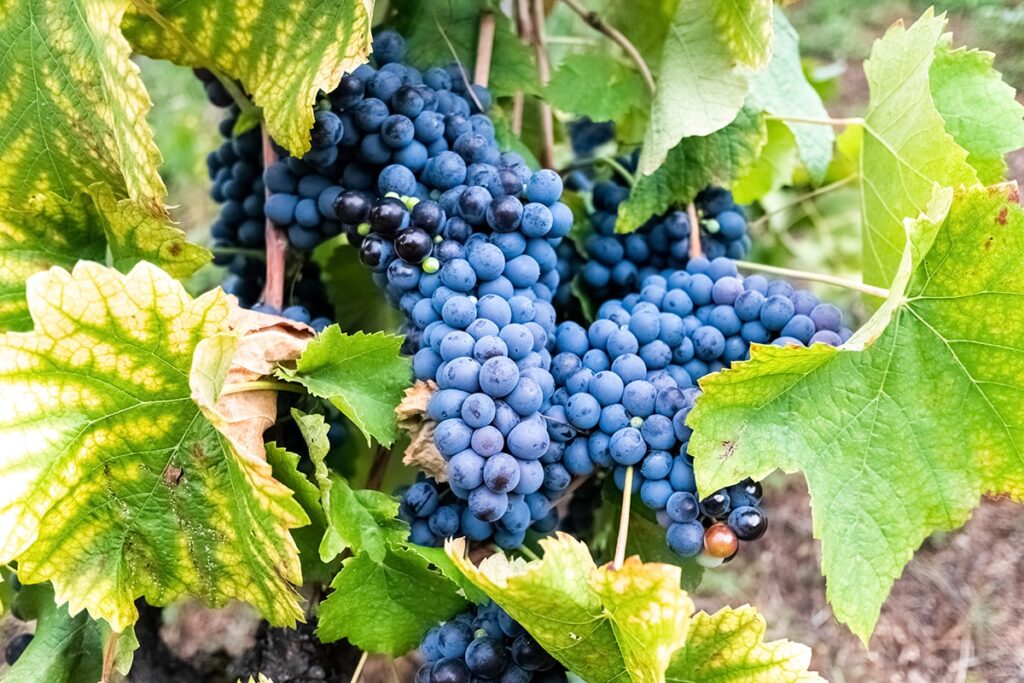
Resources
1. What are Polyphenols? Another Great Reason to Eat Fruits …
2. What Are Polyphenols? Types, Benefits, and Food Sources
3. Flavonoids: an overview – PMC – NCBI
4. Everything You Need to Know About Flavonoids – Healthline
5. Flavonoids | Linus Pauling Institute | Oregon State University
6. Top Foods High in Flavonoids – WebMD
7. Recent Advances in Natural Polyphenol Research – MDPI
8. 7 Health Benefits of Resveratrol Supplements – Healthline

With a positive approach and a motivation mindset, you will reach your health goals, no matter how hard they may seem at first. Learn more about my one-on-one coaching program here.
